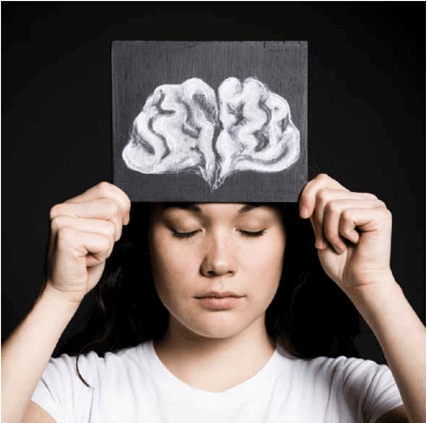Physical exercise as ADHD treatment: Necessary but not sufficient

—
Can exercise reduce behavior problems and enhance cognition in children with ADHD?
Results from multiple studies indicate that exercise mitigates aging-related declines in cognitive functioning and that it may enhance cognitive functioning in older adults. Exercise has also been shown to be an effective treatment for mild to moderate depression.
Although research on the effects of exercise on children’s cognitive functioning is limited, a recently published meta-analysis of 8 studies examining the effects of exercise on children’s cognitive performance concluded that exercise is associated with improved cognition, academic achievement, behavior, and psychosocial functioning in children. However, the research supporting this conclusion is based is limited and additional studies are needed.
What about the impact of physical exercise on children with ADHD? Many parents whose child has ADHD report that physical activity is helpful, so one might expect that this issue has been carefully studied. However, although there have been literally hundreds of studies of medication treatment for ADHD, almost no research on exercise as an ADHD treatment has been conducted. Results from one small study [Exercise impact on sustained attention of ADHD children, methylphenidate effects] reported significant improvements on a computerized attention test following physical activity. In a second study, children with ADHD and normal controls showed improved reading and math performance, and enhanced attention, following a 20-minute exercise session [Exercise Improves Behavioral, Neurocognitive, and Scholastic Performance in Children with Attention-Deficit/Hyperactivity Disorder].
Although these results suggest that exercise may help children with ADHD, the clinical utility of this work is limited by the brief exercise duration, i.e., examining impact after a single exercise session, and the absence of any sustained follow-up. Several years ago, however, results from a longer trial of physical activity in children with ADHD were published [A physical activity program improves behavior and cognitive functions in children with ADHD: An exploratory study]; these results speak more directly to the promise of exercise as a treatment for ADHD.
The study was conducted in France. Participants were 21 7 to 12-year old children (19 males) with ADHD; all children were diagnosed with the combined or hyperactive-impulsive subtype. Children assigned to the exercise treatment group were from a single school; control children were recruited from different schools in other areas. Thus, in addition to the small sample size, the study did not use random assignment; this is a significant limitation.
Children in the treatment group completed a 10-week physical activity program at their school. The program was held 3 days/week for 45 minutes and included aerobic, muscular, and motor skills exercises. The objective was to maintain moderate to vigorous physical activity during each session. Control children participated in whatever physical activity was offered at their school but had no special program. All children who were taking medication at baseline continued to do so.
Parents and teachers completed behavior ratings using the Child Behavior Checklist before and after the physical activity program. Objective assessments of attention functioning and response inhibition were obtained at similar intervals using the Test of Everyday Attention. Ratings and attention testing were obtained before and after the intervention for 18 of the 21 participants.
Results
After controlling for baseline ratings, children in the exercise group had significantly lower parent ratings at post-test for social problems, attention problems, thought problems, and Total Problems. Scores for the ‘withdrawn-depression’ scale were marginally lower. However, despite the benefits associated with exercise, average scores for children in the exercise group remained clinically elevated on most scales. Teacher ratings consistently favored children in the exercise group but were statistically significant only for the anxiety-depression score and the social problems score.
Results for the Test of Everyday Attention indicated that children in the exercise group showed improvement in sustained auditory attention.
Summary and Implications
Results from this exploratory study provide preliminary evidence that exercise may reduce behavior problems and enhance attention in children with ADHD. This is evident in the ratings provided by parents and, to a lesser extent, in teacher ratings. There was also some evidence of improved attention on an objective test. Even so, however, ratings for children in the exercise group tended to remain in a clinically elevated range.
While these results are promising, the study is limited by the small sample size and absence of random assignment to treatment and control groups. In addition, parents and teachers were not blind to children’s status and this may have influenced the ratings for children in the exercise group.
It is striking that despite the thousands of studies that have been conducted on ADHD, this is the single trial I could find that examines exercise as an intervention. And, for the reasons noted above, this is really a very preliminary investigation.
Hopefully, larger and better controlled studies of exercise as an ADHD intervention will be forthcoming shortly as such work is certainly overdue. In the meantime, a systematic physical activity program should provide important health benefits to all children, and may play a complementary role in reducing the behavioral and cognitive problems associated with ADHD.
 – Dr. David Rabiner is a child clinical psychologist and Director of Undergraduate Studies in the Department of Psychology and Neuroscience at Duke University. He publishes Attention Research Update, an online newsletter that helps parents, professionals, and educators keep up with the latest research on ADHD, and teaches the online course How to Navigate Conventional and Complementary ADHD Treatments for Healthy Brain Development.
– Dr. David Rabiner is a child clinical psychologist and Director of Undergraduate Studies in the Department of Psychology and Neuroscience at Duke University. He publishes Attention Research Update, an online newsletter that helps parents, professionals, and educators keep up with the latest research on ADHD, and teaches the online course How to Navigate Conventional and Complementary ADHD Treatments for Healthy Brain Development.
To learn more:


